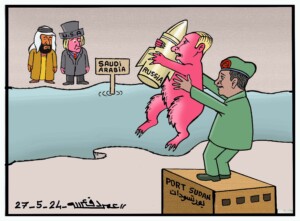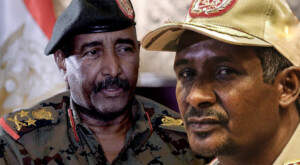Sudan govt., SPLM-N ‘to resume discussions soon’
Three-days of AU-brokered ‘informal talks’ between the Sudanese government and the rebel Sudan People’s Liberation Movement-North (SPLM-N), were concluded in Addis Ababa on Friday. The warring parties agreed to resume their discussions soon.
The two sides failed to reach an agreement on the cessation of hostilities in the Two Areas (South Kordofan and the Blue Nile) after five days of negotiations in November. Both sides kept to their stances about the delivery of humanitarian aid.
Three-days of AU-brokered ‘informal talks’ between the Sudanese government and the rebel Sudan People’s Liberation Movement-North (SPLM-N), were concluded in Addis Ababa on Friday. The warring parties agreed to resume their discussions soon.
The two sides failed to reach an agreement on the cessation of hostilities in the Two Areas (South Kordofan and the Blue Nile) after five days of negotiations in November. Both sides kept to their stances about the delivery of humanitarian aid.
The government delegation, led by Ibrahim Mahmoud Hamid, insisted on arranging the provision of food and relief items on Sudanese territory, while the SPLM-N delegation, headed by Yasir Arman, preferred the delivery of aid via Sudan and Ethiopia.
In a bid to bridge the gaps, the AU High-level Implementation Panel (AUHIP) invited both sides for informal talks in the Ethiopian capital from 16 to 18 December.
Sudan Tribune reported on Saturday that the two parties again failed to reach an agreement on the main outstanding issues. “However, they laid-out their positions on those issues openly and seriously.
“They agreed to hold a second informal meeting at the earliest date for further intensive discussions, and to allow each side to consult with its allies in order to achieve a comprehensive peace,” SPLM-N spokesman Mubarak Ardol said in a statement.
The informal discussions were characterised “by openness and transparency,” the statement reads. The talks underscored the importance to end the war in the Two Areas and Darfur simultaneously and to allow the participation of all parties in the National Dialogue in order to achieve a national consensus on solutions for the crises in the country.











 and then
and then